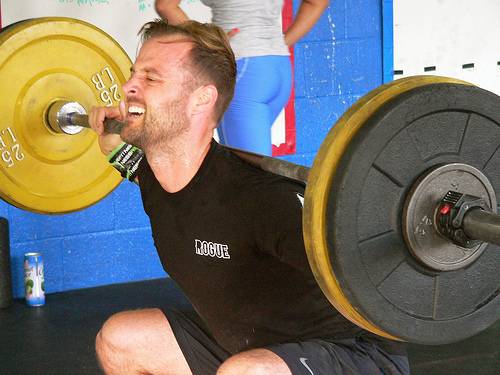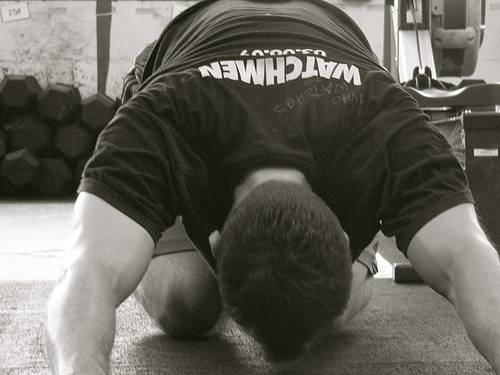When it comes to goal setting, two of the most common approaches are creating process-oriented goals or outcome-oriented goals. While outcome-based goals tend to have a definite endpoint, such as reaching a performance milestone, process-oriented goals focus on the littler things that help you to reach that milestone. Without process-focused goals, it is far less likely for people to actually achieve their long-term goal.
With that being said, here is a list of why taking joy in the process is more important than constantly focusing on the outcome. Really, this is about why taking joy in the process is the best thing you can do for yourself, hands down.
1. Focusing on the process is habit building at it’s finest.
Creating and following a routine, day in and day out, is a recipe for success in the long term. Training on Monday, Wednesday, and Friday at 4:00PM, for example, will become so ingrained that instead of scheduling your training around your day, it will be the other way around. Boom!
2. Process-oriented people are more confident.
Confident people do better at life. Period. NFL quarterback Roger Staubach once said that confidence comes from “hours and days and weeks and years of constant work and dedication.” This constant work and dedication can only come from a person who focuses on the process down to the smallest details, such as showing up and getting the work done to a high caliber.
3. Enjoying what you do makes you more likely to succeed.
One trait of a highly motivated individual is the desire to succeed. Often enough the simple ability to find joy in what we are doing is also a major factor. Need proof? Think about the one thing you do the most (Facebook-ing, eating, reading, training?). It’s likely that one thing is something you enjoy doing, which is why you continue to do it. By that logic, if you learn to love the work you do in the gym, you are more likely to continue doing it. So try to find the joy in doing those squats, deadlifts, pull ups, and swings.
4. Perfect practice makes perfect.

Strength is a skill, just like any other. Every time you set foot inside your training facility look at it as an opportunity to better yourself through some quality practice. You want to back squat twice your body weight, yet are not able to do half of that right now? Better practice consistently and practice well. Only by focusing on each day, each set and rep, and each rest period within each day will you be able to slowly chip away at a goal such as that.
5. Process-oriented people are less likely to get injured.
A person who is truly focused on the day-to-day process of achieving a long-term goal is the one who will remain true to him or herself and his or her fitness level. This type of person will focus on the basics (rest, hydration, nutrition, mobility, and other corrective work), and in the end avoid injury.
6. Enjoying the process makes you thankful.
“You don’t know what you’ve got until it’s gone.” You’ve heard that saying, right? It’s easy to take for granted things like the ability to walk, crawl, see, smell, and hear. Well, as your strength continues to grow, as your body continues to look better and move in new ways, and as your confidence shoots through the roof, it is important that you remain level headed. You need to remain humble to your body’s gift and be thankful for the abilities you have harnessed through honest, consistent, old-fashioned, grind-it-out work.
7. The process will teach you patience.
The process of training for long-term fitness goals can be challenging for various reasons. One of the most challenging aspects is learning to listen to your body and its cries for help. When building absolute strength, for example, volume is kept relatively low, but training under duress – even if it is only at 75-80% of what you are actually capable of for that rep count – takes it toll on your central nervous system and muscles. Without optimal rest and recovery we cannot build optimal strength. Just because you can do another set, or even a few more reps, does not mean you should. Trust that your body will reap the fruits of your labor. And in this case, less is often more.
8. The process will teach you to listen to your body.
By learning the patience mentioned in number seven, you will start to learn when to go harder and when to back off. When your goal is absolute strength, going to muscle failure every set is a recipe for plateauing in no time. Learn to harness the urge to end your training session feeling like a rag doll and instead find the volume of work that leaves you feeling like you did something but feeling fresh at the same time. If you take the time to listen to your body’s signals, you’ll begin to know when to call it a day, even if that means skipping your last set.

9. Finding joy in the process is the recipe for success at life.
The Internet, smartphones, and social media have made us into a society full of people who crave instant gratification, and it has made us people who become frustrated and give up easily when we don’t get it. When it comes to training, if you expect results instantly – i.e. if you expect to look like Bruce Lee after a few weeks of work – then you will come away disappointed 100% of the time. But fear not, friends, because by never missing a day of training, grinding out each rep, and consistently honing your skills you are getting that much closer. Remember, strength is a skill, and mastery of a skill – any skill – takes time, young grasshopper.
10. By focusing on the process, the outcome takes care of itself.
Without each piece of the puzzle (consistency and frequency of training, nutrition, rest, hydration, and stress management) fitting in their respective place, our goals would remain indefinitely out of reach. But by taking the time to focus on each of those things, one by one, they will become ingrained in us to the point that they are automatic. By successfully building all of the habits we need for success, the outcome – also known as the long-term goal – will take care of itself.
Photo 1 courtesy of Shutterstock.
Photos 2 & 3 courtesy of CrossFit LA.






